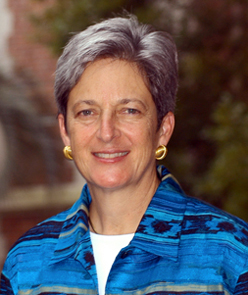
Florida State is one of 21 universities that will be examining lower doctoral completion rates among American Indian, Hispanic and black students.
The Council of Graduate Schools (CGS) awarded grants of $30,000 each to selected institutions to tackle the issue from a new angle. All of the schools will investigate the experiences of minority doctoral students in the disciplines of science, technology, engineering and mathematics — better known as the STEM fields.
“We are very excited to have been selected to participate in this study, as the lack of participation of minority students in STEM disciplines at the doctoral level remains a concern of national importance,” said Nancy Marcus,the Robert O. Lawton Professor of Oceanography and the dean of The Graduate School at Florida State.
While minority Ph.D. participation rates have increased in the last decade, the actual numbers are still quite low, Marcus said.

The grants are backed by a larger, three-year, $1.5 million grant from the National Science Foundation (NSF). They are all aimed at helping educators better understand the factors that may prevent minority students from completing doctorates in STEM areas.
“A goal of the overall study is to determine if particular support programs and strategies result in higher retention and completion rates,” Marcus said.
Florida State has already gained quite a bit of insight into the issue as a result of its participation in a previous CGS doctoral retention and completion study.That study examined all graduate students in a select number of disciplines.
For the last several years, Florida State has been ranked by the Survey of Earned Doctorates as among the top 15 institutions for the number of black students graduating with Ph.D.s. That’s important — and positive for Florida State — Marcus said, because in order to be eligible for the CGS/NSF study, an institution needs a minimum number of enrolled minority students to provide a reasonable sample size.
Florida State is one of four public universities in Florida chosen to receive the recent round of grants.
“The fact that so many institutions from Florida were selected to participate also suggests that we are doing something right in the state,” Marcus said.
Florida State and the other awardees will:
- Collect and report completion and attrition data for all underrepresented minority students entering STEM doctoral programs in academic years 1992-1993 through 2011-2012.
- Complete and submit data on program characteristics and policies, practices and interventions that might affect completion and attrition for all STEM Ph.D.programs offered by the institution.
- Field a Web-based student survey, developed by CGS, covering a set of topics addressing completion and attrition in STEM doctoral programs.
- Host a two-day site visit for CGS project staff to conduct focus groups with students and interviews with graduate deans, faculty, and other university personnel.
- Highlight the institution’s participation in this effort by taking part in national discussions on the topic of Ph.D. completion (e.g., at CGS Annual Meetings and/or Summer Workshop sessions).
The projected release date of the study’s findings is June 2014.
For additional information, contact Marcus at (850) 644-3501 or nmarcus@fsu.edu.




